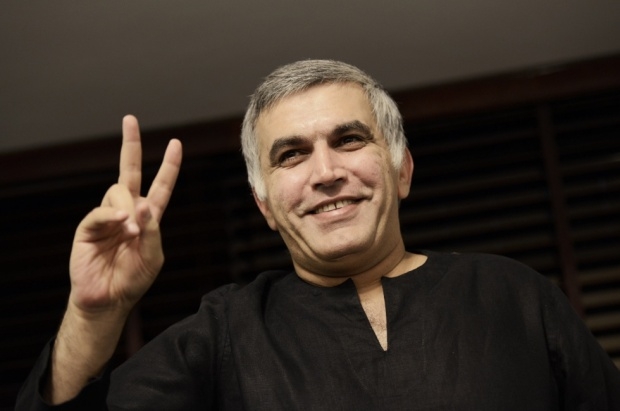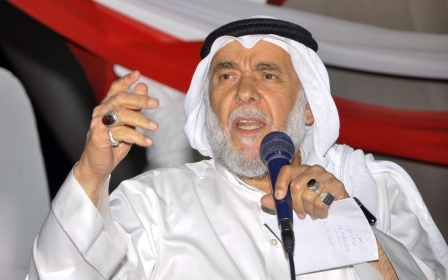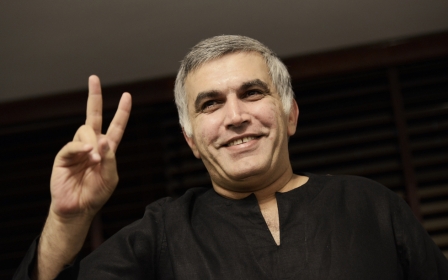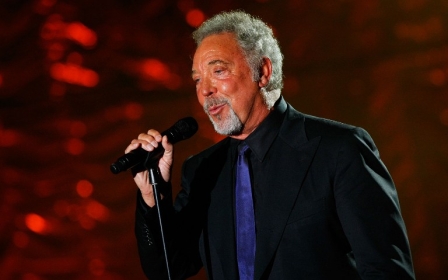Nabeel Rajab dramatically deteriorating in prison: HRW

Prominent Bahraini activist Nabeel Rajab is suffering from dramatically deteriorating health after 10 months of arbitrary detention, Human Rights Watch said on Wednesday.
The outspoken government critic has been held since his arrest in June 2016 for tweeting criticism of Saudi air strikes against Yemen.
"Filing criminal charges against Nabeel Rajab solely for his peaceful criticism and then refusing to free him while the courts cavalierly postpone hearings shows Bahrain’s contempt for the most elemental human rights," said Joe Stork, deputy Middle East director at HRW.
"Nabeel Rajab should not be in jail, and his deteriorating health underscores the injustice of arbitrarily detaining him."
Since being held, this time around, Rajab has undergone two operations, and suffered two bouts of heart palpitations that required emergency medical care, HRW says.
He has also developed a range of other medical conditions, including a low white blood cell count and depression.
Rajab had previously been imprisoned several times for his part in protests against the government of Bahrain, after the eruption of the Arab Spring in early 2011.
His next trial hearing is scheduled for 17 May, and if ultimately convicted on all counts – the charge sheet includes offending a foreign country, and offending national institutions, for his comments about the domestic judicial system – he could face 18 years behind bars.
"The charges against Rajab are a clear violation of his right to free expression, protected under article 19 of the International Covenant on Civil and Political Rights (ICCPR), which Bahrain has ratified," HRW said in a statement.
Speaking to Middle East Eye this week, another Bahraini activist, and a relative of Rajab, warned civilians might lose hope of a "peaceful reconciliation" if authorities do not soon ease up on silencing dissent.
"In countries where freedom of expression is restricted, where there is political, social and economic exclusion for the majority of the population, where there is no space for civil society, obviously the frustration levels grow," Maytham al-Salman said.
New MEE newsletter: Jerusalem Dispatch
Sign up to get the latest insights and analysis on Israel-Palestine, alongside Turkey Unpacked and other MEE newsletters
Middle East Eye delivers independent and unrivalled coverage and analysis of the Middle East, North Africa and beyond. To learn more about republishing this content and the associated fees, please fill out this form. More about MEE can be found here.




